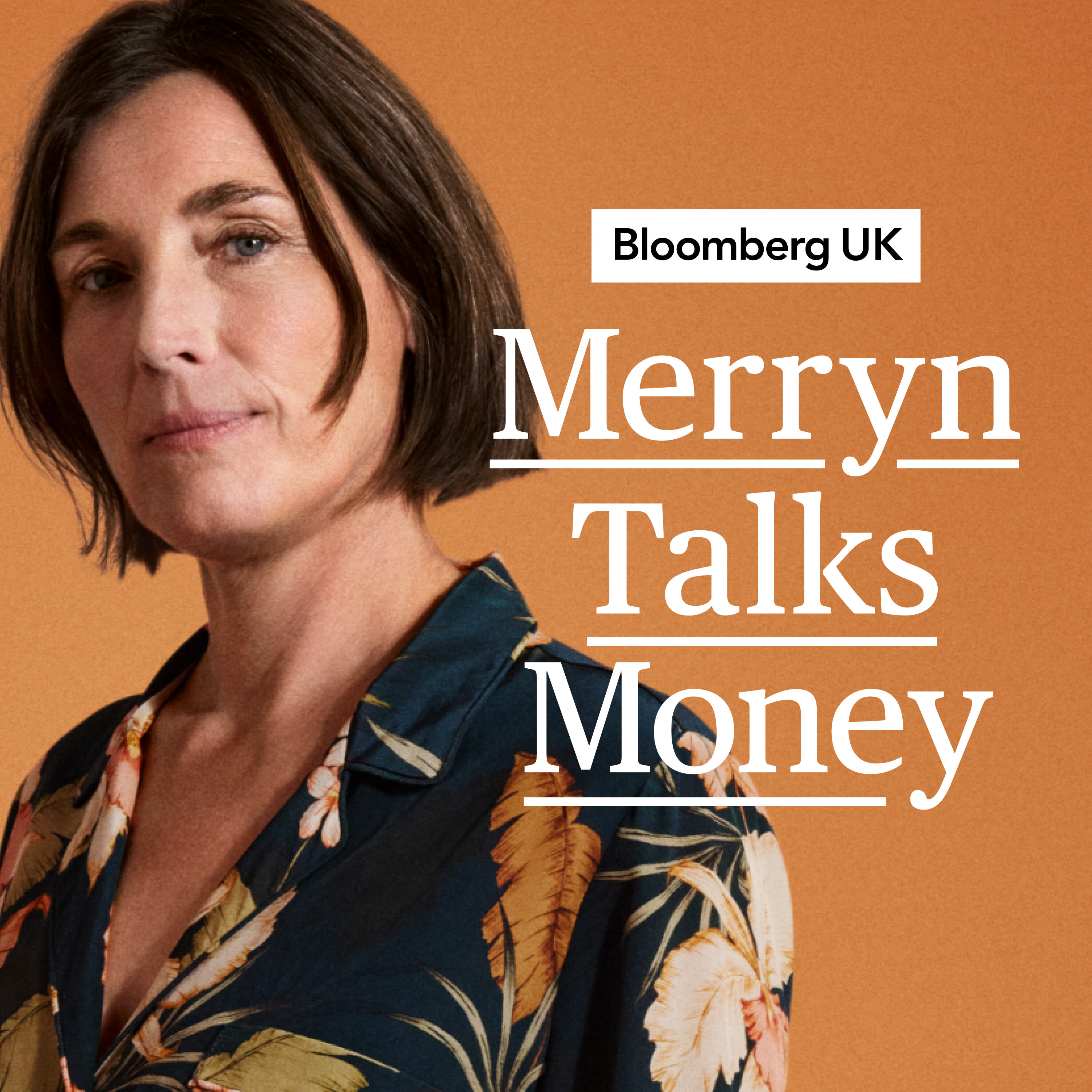

Merryn Talks Money
Bloomberg
Merryn Talks Money with Bloomberg senior columnist Merryn Somerset Webb is your key to understanding how markets work – and how you can make them work for you. Every episode features a relaxed but in-depth conversation with a fund manager, a strategist, a Bloomberg expert or just someone Merryn finds particularly interesting in any given week. Listen in for the kind of insights and explanations everyone can use to help them make better saving and investing choices.
Episodes
Mentioned books

Feb 16, 2026 • 27min
Modern Monetary Theory: Free Money or Fiscal Fantasy?
Simon French, Managing Director and Chief Economist at Panmure Liberum, explains Modern Monetary Theory in plain terms. He discusses the pandemic as a real-world stress test. He weighs monetary versus fiscal tools and highlights UK supply constraints, political tensions, and market risks. Short, sharp takes on capital flows, bond markets, and how policy choices reshape resource allocation.

Feb 13, 2026 • 18min
Markets Weekly: AI Sparks Market Rotation, UK Political Risk, and the Pensions Property Debate
Sharp market rotation as AI shakes up legal, wealth and digital platforms. Debate over whether AI will displace incumbents or just boost productivity. Shifts in flows make Asia, Europe and UK equity opportunities worth reconsidering. Questions raised about timing of UK deals and whether political risk is already priced in. Discussion on pensions policy and property withdrawal proposals.

Feb 11, 2026 • 22min
What Reform Plans to Do If It Takes Over the UK with Richard Tice
Richard Tice, British businessman and deputy leader of Reform UK, outlines the party’s readiness to govern and managerial approach. He discusses day-one moves like leaving the ECHR, scrapping the Human Rights Act and ending net zero. Conversation also covers plans to revive UK markets, change tax and pensions, and attract crypto and investment.

7 snips
Feb 9, 2026 • 32min
The 'Boring' Industries the UK Can’t Afford to Lose
Ed Conway, Sky News economics editor and author of Material World, outlines why raw materials and chemical industries are central to modern life. He highlights shrinking UK chemical capacity, the critical role of salt, ammonia and ethylene, and how high energy costs and policy choices threaten supply chains. The conversation warns of national security and industrial resilience risks while pointing to potential policy fixes.

22 snips
Feb 6, 2026 • 25min
Emergency Pod: Is It All Over for Bitcoin?
Charlie Morris, founder and chairman of ByteTree and long-time Bitcoin researcher, joins to explain why Bitcoin behaves more like a tech asset than digital gold. He outlines Bitcoin’s four-year cycles and links price moves to liquidity and tech stock swings. They discuss quantum risk, stablecoins, and whether recent volatility signals broader market pain.

23 snips
Feb 6, 2026 • 15min
Markets Weekly: Tech and Crypto Slide, BOE Surprise, Turbulence for Gilts and Pound
Marcus Ashworth, Bloomberg Opinion columnist and markets commentator with bond and European equities expertise. He unpacks the Bank of England's surprise hold and shifting rate expectations. They cover AI-triggered software stock sell-offs and a rotation back to value names. Discussion also touches on rising unemployment, credit spread worries, and longer-term re-rating across sectors.

Feb 4, 2026 • 25min
Best of: How Do You Pick the Best Wealth Manager?
Gareth Wilson, Capgemini banking and wealth leader who authors the World Wealth Report, shares expertise on the coming $100 trillion wealth transfer. He explores who counts as high net worth and where wealthy populations are growing. He covers why heirs may switch advisors, demand for crypto and alternatives, and what younger clients expect from digital, personalized service.

34 snips
Feb 2, 2026 • 37min
Why the Price of Gold Reflects a Long-Term Shift
John Reade, senior market strategist at the World Gold Council with 35+ years in the gold industry, joins to explain gold's recent record run. He discusses central banks as price backstops, China’s shifting demand and the role of gold as a modern safe-haven. He compares ways to own metal, silver’s supply quirks, and how Bitcoin differs from gold.

15 snips
Jan 30, 2026 • 18min
Markets Weekly: Gold’s Moves, Yen Intervention, and Fallout From a Weaker Dollar
Marcus Ashworth, Bloomberg Opinion columnist focused on European markets and fixed income. He discusses gold’s rapid rally and who's buying. They tackle yen interventions and US 'rate checks'. They explore how a softer dollar could reshape eurozone monetary policy and investor hedging decisions.

10 snips
Jan 28, 2026 • 31min
How Much Insurance Do You Really Need?
Kevin Ryan, Bloomberg Intelligence analyst and consumer insurance specialist, offers practical takes on what cover matters as we head into 2026. He explains legal minimums for car cover and what extras to consider. He covers rebuild versus market value for buildings, documenting valuables for contents, pet and travel cover basics, and when life or private medical policies may make sense.


